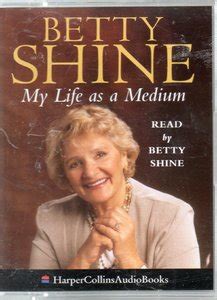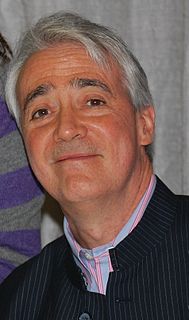A Quote by Betty Shine
There is no such thing as death. We have all lived before and we are all going to experience new lives.
Related Quotes
Death is not the end, but the beginning of a new life. Yes, it is an end of something that is already dead. It is also a crescendo of what we call life, although very few know what life is. They live, but they live in such ignorance that they never encounter their own life. And it is impossible for these people to know their own death, because death is the ultimate experience of this life, and the beginning experience of another. Death is the door between two lives; one is left behind, one is waiting ahead.
In journalism, when we want to get a story over the jumps, we refer to it as a universal experience, but it almost never is. There is one universal experience, that's death. That is something we are all going to experience at some distance in the lives of loved ones, strangers and friends, people around us and certainly our own.
The encouraging thing is that every time you meet a situation, though you may think at the time it is an impossibility and you go through the tortures of the damned, once you have met it and lived through it you find that forever after you are freer than you ever were before. . . . You gain strength, courage, and confidence by every experience in which you really stop to look fear in the face. You are able to say to yourself, “I lived through this horror. I can take the next thing that comes along.
Sometimes," Jem said, "our lives can change so fast that the change outpaces our minds and hearts. It's those times, I think, when our lives have altered but we still long for the time before everything was altered-- that is when we feel the greatest pain. I can tell you, though, from experience, you grow accustomed to it. You learn to live your new life, and you can't imagine, or even really remember, how things were before.
In some ways, Valiant Gentlemen grows out of Tales of the New World, my collection of short stories about explorers who lived "great" lives, but whose experience of it was in the same register as all our lives are - we feel the same extent of human emotion regardless of how exceptional our actions are: nothing is more exceptional than one's own life.
My conjecture is that most people will refuse to let go, even when their lives have become boring (at least in comparisons with possible lives lived by new generations). If this happens, there will eventually be no room for new generations. A kind of collective irrationality will lead to a bleak life for the last generation that decides to stay around. Unless we put and end to the human race (through global warming, for example), before this happens, individual egoism will block the path to a better world.
Strange combination, isn't it--gratitude and resentment? But this is the way I think. Actually, I think everybody thinks that way. Even the children of the humans who died long ago, I think they lived their lives holding similar contradictory thoughts about their parents. They were raised to learn about love and death, and they lived out their lives passing from the sunny spots to the shady spots of this world.

































